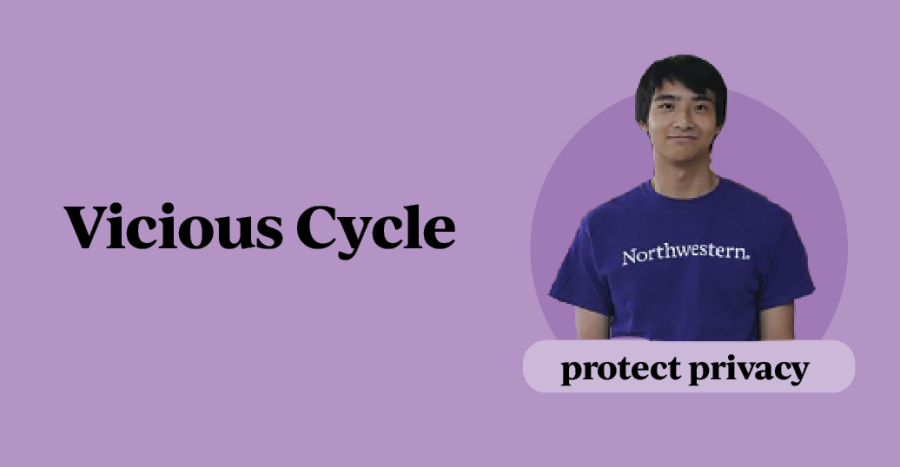Recently, legislators have debated placing a ban on TikTok, and on one side, it would benefit the psychology of A LOT of people, both kids and adults. But that’s not what the ban on the TikTok bill is. Per the Senate’s page, the bill is to ban any and all “social media” companies that are “under the influence of China, Russia and other designated countries.” Arguably, it doesn’t matter if the companies collect data at all, as long as they are “under the influence,” whatever that means. I really don’t like TikTok, and I won’t use it. But I have no desire to have the government telling me which apps I’m allowed to use.
But let’s go over why lawmakers want to ban TikTok. Recently, TikTok CEO Shou Zi Chew revealed new details emerging about information abuse, such as tracking your IP address, mobile carrier, time zone settings, model of your device user’s activities, and location. Employees have also admitted to using the app as a surveillance method for journalists who reported on TikTok’s ties with the Chinese government. TikTok is not just tracking info; it is artificially boosting some types of content and downplaying others. That’s the actual issue. At the end of the day, at the top of every Chinese company is the CCP, a hostile foreign government to the United States. If you get a person’s attention for hours a day and control what they see, you can subtly change their world view.
The spying and data retrieval isn’t the only problem with TikTok, but it’s the fact it’s a subtle dopamine loop. Many minors watch the app for hours daily, so security issues are concerning, and there’s been tons of issues with young people following dumb TikTok trends. Dopamine manipulation is a real thing. It isn’t exclusive to TikTok, though. If it’s not TikTok, it’ll be something else. It was Vine before, and now every platform is trying to get that endless scroll of vertical shorts going (YouTube Shorts, Reddit, Instagram Reels). Furthermore, most health/science on TikTok is just incorrect bordering on harmful, and according to a recent Forbes headline, “33% Of Gen Zers Trust TikTok More Than Doctors,” which is a climbing trend formed by teens addicted to TikTok. What lawmakers should do is establish education about the stupid trends and online safety.
It seems like lawmakers are trying to get rid of the symptom of privacy concerns and not the problem which is how no tech company or corporation respects individual privacy.
In short, if the government wants to protect user privacy and future generations, they should ban the actual act of selling user data or collecting user data to China. Don’t just ban apps using ambiguous and vague language like, “under the control of China,” because that could mean anything the executives want it to mean. Furthermore, don’t include an exception allowing companies to harvest our data as long as they comply with reporting the information to the government.
If legislators want to write laws protecting our privacy, great. If they want to write laws that companies can’t manipulate algorithms that promote certain political messages or consumer patterns, that’s fine too. But I absolutely do not support this bill. The joy that people receive from the app, the creativity it engenders and the careers it has spurred by its creators would be unfortunate casualties resulting from a ban.
The views in this column do not necessarily reflect the views of the HiLite staff. Reach Isaac Hsu at Ihsu@hilite.org.
To see more of Isaac Hsu’s work, click here.

































![AI in films like "The Brutalist" is convenient, but shouldn’t take priority [opinion]](https://hilite.org/wp-content/uploads/2025/02/catherine-cover-1200x471.jpg)









































![Review: “The Immortal Soul Salvage Yard:” A criminally underrated poetry collection [MUSE]](https://hilite.org/wp-content/uploads/2025/03/71cju6TvqmL._AC_UF10001000_QL80_.jpg)
![Review: "Dog Man" is Unapologetically Chaotic [MUSE]](https://hilite.org/wp-content/uploads/2025/03/dogman-1200x700.jpg)
![Review: "Ne Zha 2": The WeChat family reunion I didn’t know I needed [MUSE]](https://hilite.org/wp-content/uploads/2025/03/unnamed-4.png)
![Review in Print: Maripaz Villar brings a delightfully unique style to the world of WEBTOON [MUSE]](https://hilite.org/wp-content/uploads/2023/12/maripazcover-1200x960.jpg)
![Review: “The Sword of Kaigen” is a masterpiece [MUSE]](https://hilite.org/wp-content/uploads/2023/11/Screenshot-2023-11-26-201051.png)
![Review: Gateron Oil Kings, great linear switches, okay price [MUSE]](https://hilite.org/wp-content/uploads/2023/11/Screenshot-2023-11-26-200553.png)
![Review: “A Haunting in Venice” is a significant improvement from other Agatha Christie adaptations [MUSE]](https://hilite.org/wp-content/uploads/2023/11/e7ee2938a6d422669771bce6d8088521.jpg)
![Review: A Thanksgiving story from elementary school, still just as interesting [MUSE]](https://hilite.org/wp-content/uploads/2023/11/Screenshot-2023-11-26-195514-987x1200.png)
![Review: "When I Fly Towards You", cute, uplifting youth drama [MUSE]](https://hilite.org/wp-content/uploads/2023/09/When-I-Fly-Towards-You-Chinese-drama.png)
![Postcards from Muse: Hawaii Travel Diary [MUSE]](https://hilite.org/wp-content/uploads/2023/09/My-project-1-1200x1200.jpg)
![Review: "Ladybug & Cat Noir: The Movie," departure from original show [MUSE]](https://hilite.org/wp-content/uploads/2023/09/Ladybug__Cat_Noir_-_The_Movie_poster.jpg)
![Review in Print: "Hidden Love" is the cute, uplifting drama everyone needs [MUSE]](https://hilite.org/wp-content/uploads/2023/09/hiddenlovecover-e1693597208225-1030x1200.png)
![Review in Print: "Heartstopper" is the heartwarming queer romance we all need [MUSE]](https://hilite.org/wp-content/uploads/2023/08/museheartstoppercover-1200x654.png)




